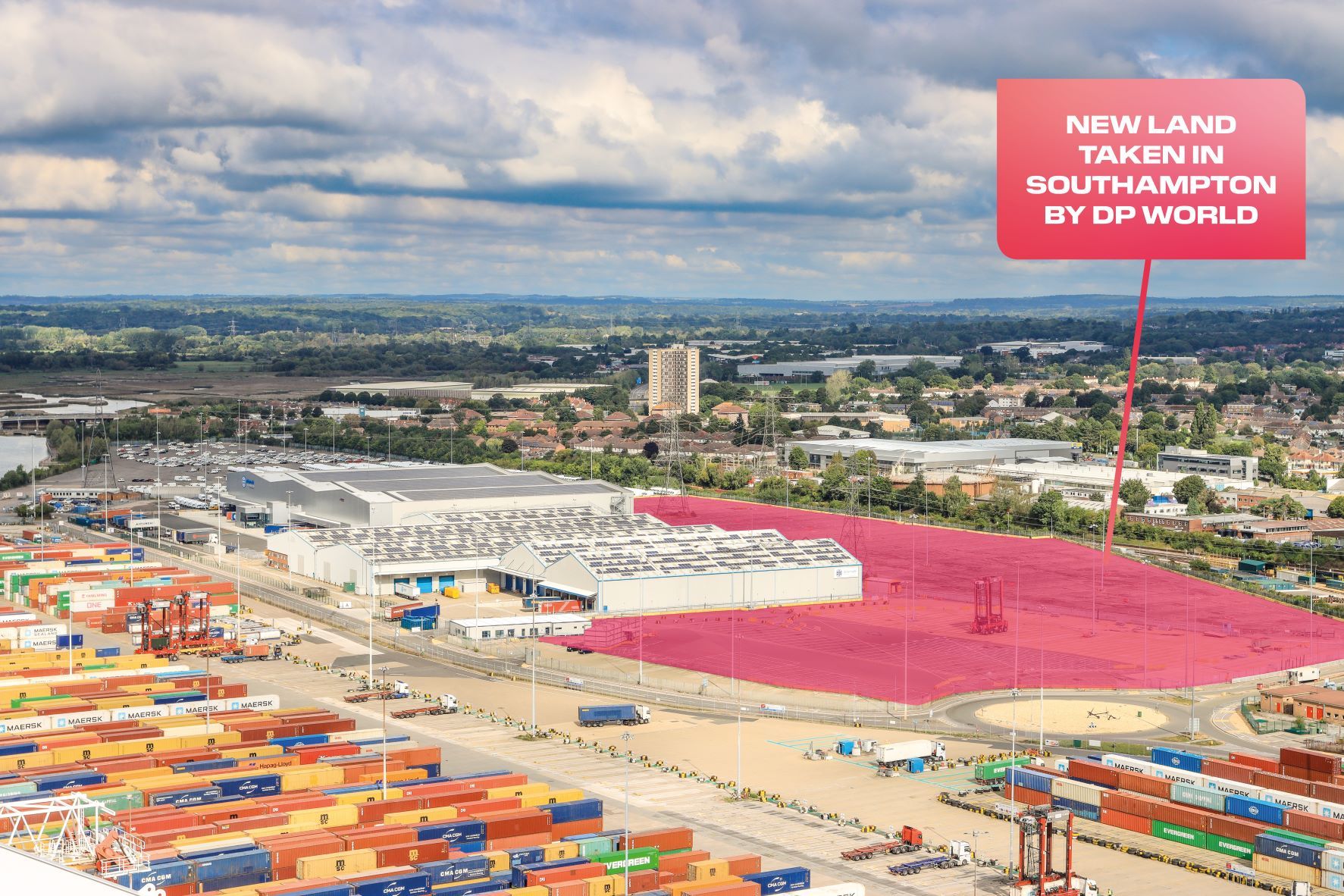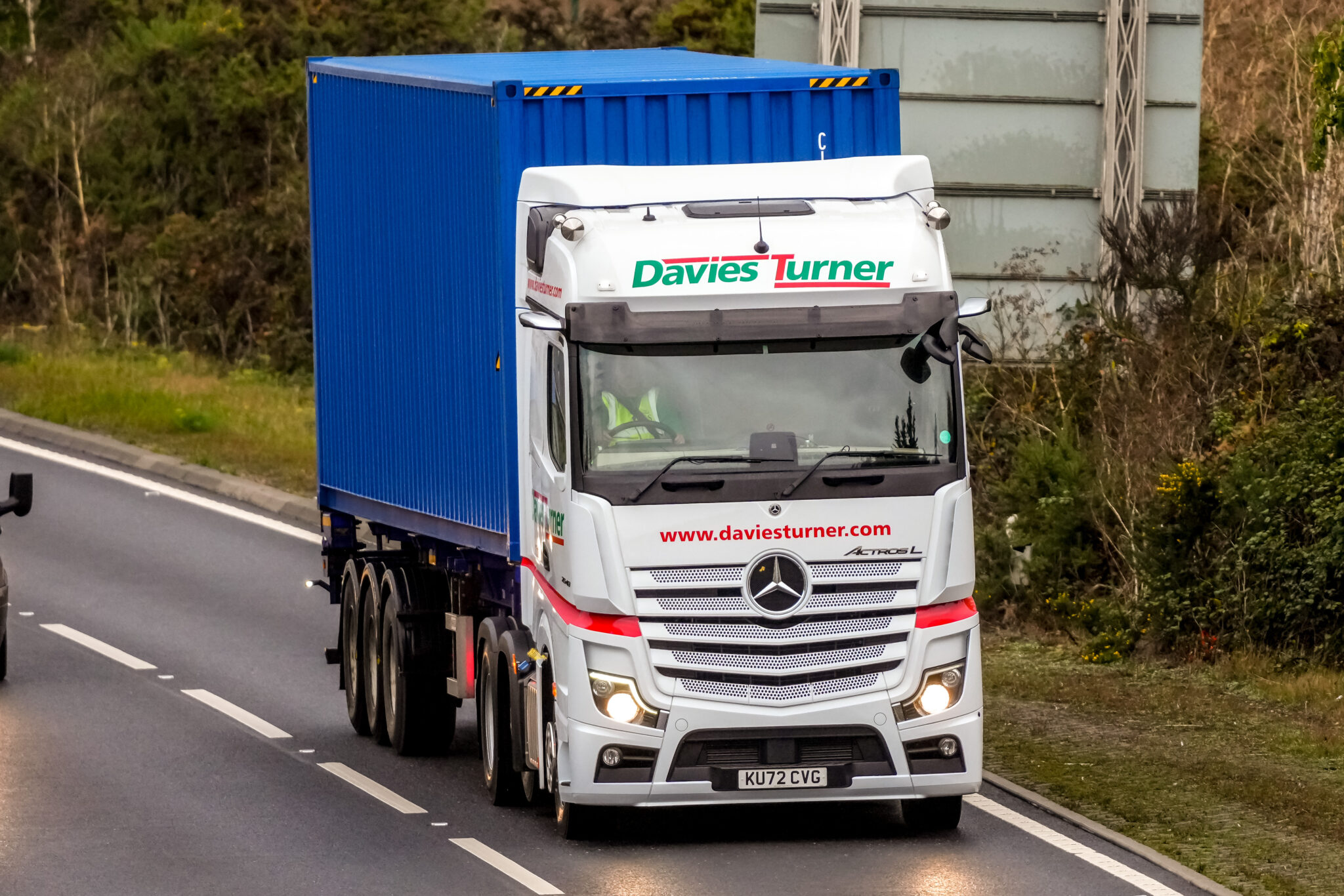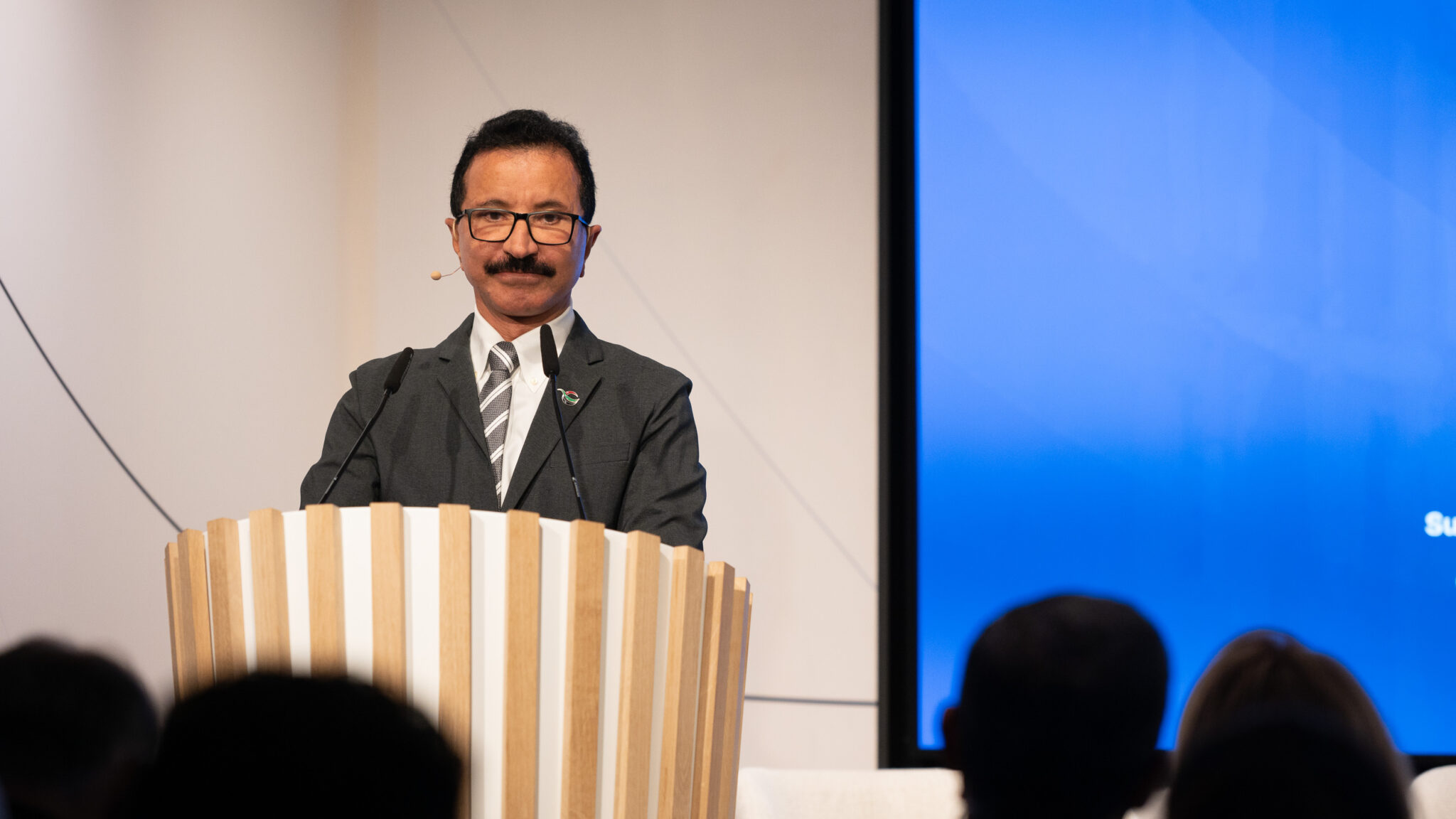DP World has agreed to lease a 7,500 sq.m site next to its Southampton container terminal to develop state of the art facilities for lorry drivers, as the leading provider of smart logistics solutions continues its major investment programme in the UK.
The £15m project will deliver driver welfare facilities – including a restaurant, showers, toilets and 24-hour security – as well as increasing the size of the storage area used for containers moved by road and rail. DP World is developing the facility to build on the £40m which it has invested in the resilience of its operations at Southampton since 2021 and further develop its capabilities across the supply chain.
Ernst Schulze, UK Chief Executive at DP World, said: “We are delighted to announce this major step forward in the facilities we provide for drivers at Southampton, which will help to ensure that they are fit and rested to keep the supply chain moving. The overnight lorry park will provide access to amenities they need to do their jobs safely and well.”
“The new land will also free up valuable storage space to expand further our rail interconnectivity. Our investment in rail at both Southampton and London Gateway eases congestion on the roads, with 300,000 trucks taken off UK roads each year. Last year we launched a new intermodal train service connecting our logistics hubs at London Gateway and Southampton, as we continue to build our end-to-end capability.”
The new site, which was previously used for car storage and is expected to be fully operational this year, has been leased from Port of Southampton owner ABP.
Alastair Welch, ABP Southampton Regional Director, added: “As the UK’s leading export port, Southampton plays a key role in keeping Britain trading. This new facility will significantly improve driver welfare as well as reducing the number of vehicles having to park up for rest periods elsewhere in the local area.”
DP World – which operates ports, terminals and logistics businesses on six continents – runs the UK’s most advanced logistics hubs at London Gateway and Southampton: two deep water ports with access to freight rail terminals, and a rapidly expanding logistics park on the doorstep of the capital. Between them they moved a record volume of cargo in the first half of the year, with a combined total of 1.93m TEU.
The new driver facility is the latest investment in the UK by DP World. A new £350m fourth berth at London Gateway now under construction, which will lift capacity by a third when it opens in 2024. The construction project is supporting 1,000 jobs and the port-centric logistics park will employ a further 12,000 people when it is completed in five years’ time.
Over the last 10 years DP World has invested £2 billion in the UK, supporting thousands of jobs. Another £1 billion of investment has been earmarked for the UK over the next 10 years, making this country the company’s largest investment outside the Middle East.




